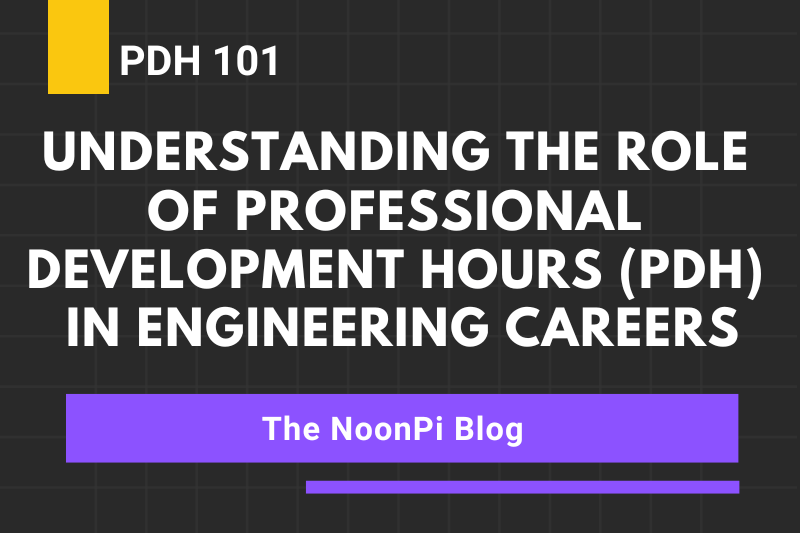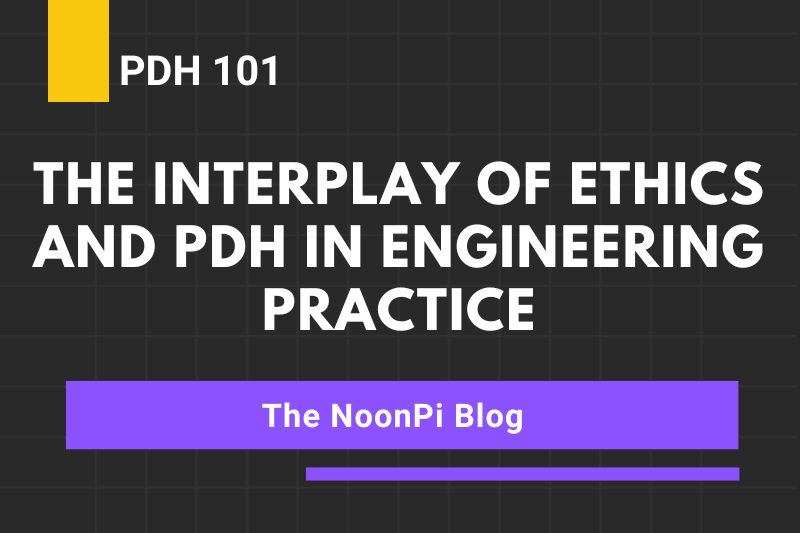In a busy engineering profession, prioritizing ongoing learning amidst project deadlines, client meetings, and technical challenges can be a daunting task. However, putting off your Professional Development Hours (PDH) until the eleventh hour might lead to more stress and complications than you’d anticipate. In this article, we will examine why you should avoid delaying your PDH acquisition and explore how early and consistent engagement can benefit your professional growth.
- Ethics and PDH: The Connection
Postponing your PDH activities until close to the licensure renewal deadline can lead to unnecessary stress. The rush to find relevant courses, comprehend new information, and complete assessments in a compressed timeframe can prove overwhelming. This stress may inhibit your ability to absorb and retain the information, thus defeating the purpose of these professional development activities. - Compliance with State Regulations
An essential factor to consider is that some state boards limit the number of PDH credits that can be earned in a single day. For instance, certain jurisdictions prohibit engineers from earning more than eight PDH in one day. If you’re trying to cram all your PDH acquisition into the final days before your renewal is due, you may end up falling short of the required credits due to these restrictions. - Quality Over Quantity
PDH is not merely a box to check off in maintaining your licensure; it’s an opportunity to expand your knowledge, learn about new technologies, and enhance your skills. When you rush through courses merely to obtain the necessary credits, you miss out on the chance to thoroughly engage with the content and gain valuable insights that could advance your career. - Mitigating Technical and Administrative Glitches
Online platforms, where many PDH courses are available, may experience technical issues. Similarly, administrative delays can occur when registering for seminars or processing course completions. By starting your PDH acquisition early, you allow ample time to deal with such glitches without risking non-compliance with your licensure requirements. - Balancing Professional Development and Work Commitments
Engineering is a demanding profession, and there will be periods of high workload where your projects will demand your full attention. If you’ve been proactive with your PDH, you can comfortably focus on these commitments when they arise, knowing that your licensure requirements are already in hand. - Planning Your Professional Development Journey
Starting early gives you the opportunity to strategically plan your PDH activities. You can identify courses that align with your career goals, gaps in your knowledge, or emerging trends in your field. This strategic approach ensures that your PDH not only meets licensure requirements but also genuinely contributes to your professional growth.
In Conclusion
While it’s human nature to postpone what may seem like ancillary tasks, delaying your PDH activities is a risky gambit. It’s not merely about compliance with licensure requirements. Engaging with PDH consistently and proactively offers a host of benefits – from reduced stress to enhanced career opportunities. So, take the driver’s seat in your professional development journey, and remember that when it comes to PDH, time truly is of the essence.









Leave A Comment